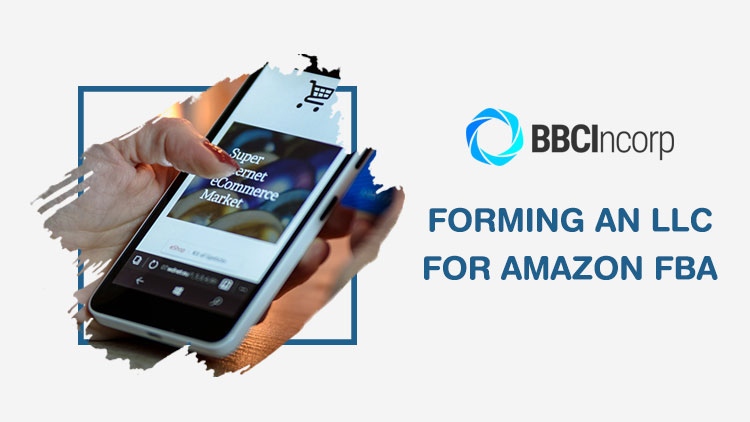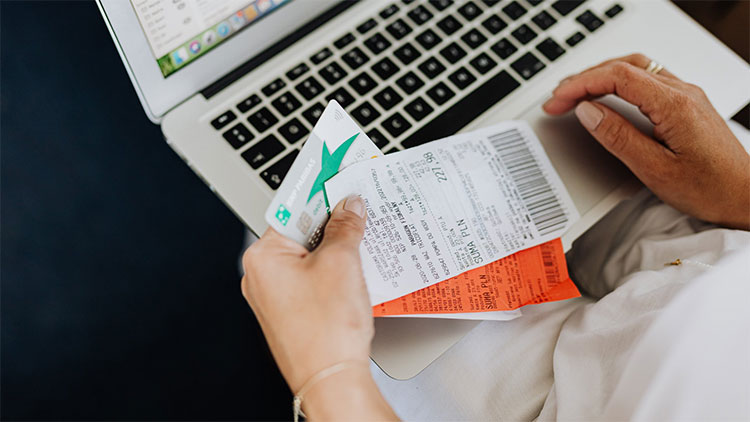
Let’s say you’ve just launched your US Amazon FBA account so you can sell your products on this popular e-commerce marketplace.
You upload your product descriptions, touch up your seller’s account and successfully handle your very first order.
After a while, your revenues keep increasing, and you start wondering whether you need to form a Limited Liability Company (LLC) to truly legitimate your business.
The simple answer for this is: Maybe. Although you do not need to form an LLC to start selling on Amazon, you may decide to do so for some important reasons.
One of the reasons to consider is legal protection.
Although you’re just a small seller now, what happens if your business suddenly leverages? What if people start filing lawsuits against you? Can you protect yourself and your business?
However you try to avoid it, you’ll eventually have to find answers to the valid question “Do I really need to form an LLC for my Amazon FBA?”
In today’s article, let’s wrap your head around this matter and get to the point of why LLC is the best structure for your Amazon FBA business.
1. Why would you need an LLC for Amazon FBA?
Whether selling on Amazon is “just a hobby” or a serious decision, you never know what’s coming at you in the future.

Unfortunate events may occur that could turn your just-for-fun business into a liability.
From the beginning, you should always choose a smart structure that lowers your liability in difficult situations. And an LLC is exactly what you need.
Imagine you can choose a perfect structure to grow your business today. Don’t miss out on our guidelines on How to choose a legal structure.
An LLC can give your Amazon FBA business a separate legal identity, distinguishing it from you and your personal assets.
Any issues with your business won’t impact you personally, even if someone ever sues you for selling a faulty product on Amazon.
You may think there is no chance your business will be sued, but Product Liability lawsuits are very common in the US, with around 56,041 cases filed in 2019.
The point is, when you sell on an exposure marketplace like Amazon, you’ll become a big target for the public, and people are likely to come at you for criticism and lawsuits.
One more reason to start an LLC for your Amazon FBA business is credibility.
According to a survey by eConsultancy, Amazon customers prefer to buy from established companies with business names.
An LLC status can always give you a professional identity and show your seriousness.
Once you incorporate your LLC, customers (and even potential investors) can see that your Amazon FBA business is legitimate and get in touch with you.
Unlike a C-corporation – which only makes sense for raising funds and venture capital, an LLC is a good option if you are just starting out.
In fact, over 80% of startups and SMEs choose an LLC as their business structure.
2. What is the best way to register your LLC for Amazon FBA?
Follow the 6 easy steps below to set up an LLC for your Amazon FBA business.
Step 1: Choose a state to register your LLC for Amazon FBA
To utilize the US Amazon fulfillment program, you should incorporate your LLC in states that have Amazon FBA centers.
In specific, business-friendly states like Delaware or Nevada can be a good place to start. You can register your LLC in these states easily even if you live in another country.
Let’s set your LLC off to a good start with our full list of Best States to Form an LLC for Amazon FBA
Step 2: Choose a legal name for your LLC
You’ll need to create an original name for your LLC.
Generally, you should always do some research in your chosen state, to avoid picking a name that already exists.
Along with that, you’ll need to include a “designator” for an LLC, normally by adding suffixes like ‘LLC’ or ‘Limited liability company’.
For example: ‘Bio Trading, LLC’ or ‘, Ace Management, Limited liability company’.
If you already have a name for your LLC, but are not sure whether it’s original and unique, simply give it a check with our Business Name Check Tool.
Step 3: Assign a registered agent for your LLC
In general, you must have a registered agent for your LLC.
Simply put, a registered agent is a person (individual or company) who receives legal papers and has responsibility for filing for your Amazon FBA business.
Your registered agent must have a physical address in the state where you incorporate your LLC.
Step 4: Create your LLC’s operating agreement
Even though most states don’t require it, all LLCs with two or more members should have an operating agreement.
It is a document that outlines the operation and the agreements between the owners of your LLC.
Step 5: File article of Incorporation with Secretary of State
To register your LLC, you’ll need to file ‘articles of organization’ with your Secretary of State.
Note
An article of incorporation is also known as a ‘certificate of formation’ or ‘certificate of organization’ in some states.
You can complete an article of organization online or by using a template available on your Secretary of State’s website.
To summarize, your article must include information such as:
- Name of your limited liability company
- Details of the registered agent of your LLC
- Other basic information (i.e. purposes and objectives of your company, ownership, and agreements, etc.)
In addition, you’ll have to pay a filing fee when you submit the articles. In most states, the fees are around US$100.
Step 6: Submit form IRS to obtain EIN for your LLC
Generally, you don’t need an Employer Identification Number (EIN) if you’re running a single-member LLC.
However, EIN is a mandatory requirement when you open a business bank account or hire employees for your business, so you’re advised to obtain it as soon as possible.
As a business leader, you tend to believe you can do everything on your own – from filing your article of incorporation to obtaining an EIN.
However, wasting time with these paperwork and back-office tasks may actually delay your business growth.
By engaging a professional service provider for your LLC incorporation and EIN application, you’ll have more time to focus on what you do best.
Apart from forming an LLC, you might also want to consider a business bank account for Amazon FBA. Unlock our list of Business Bank Account for Amazon Sellers and pick your best option right now!
3. What tax issues to consider as an LLC for Amazon FBA?
Taxation is a big issue you’ll need to deal with when running an LLC for Amazon FBA.
But don’t worry, we’ve listed down some basic information below so you can tackle your taxes with ease.

3.1. How does your LLC pay taxes?
Your LLC is typically subject to pass-through taxation.
To put it simply, the taxes will pass through the company to you – the owner. And you will pay income tax as an individual on your LLC’s profits.
Your income tax rate will depend specifically on your individual income bracket. Find your Income brackets and rates here.
Along with income tax, you’ll also pay self-employment tax at the rate of 15.3% if you’re a US citizen or resident.
On the flip side, if you’re a non-resident living in the US, you may be subject to self-employment tax if the International Social Securities Agreement determines so.
For instance, you form an LLC for your Amazon FBA business. If your LLC earns US$50,000 in profits, you’ll pay taxes on that US$50,000 at an income tax rate and pay self-employment taxes (15.3%) on your income.
3.2. When does your LLC need to collect sales tax?
You’ll need to collect sales tax from your customers and remit the tax if you have a sales tax nexus or sell taxable products/services in a state.
Sales tax nexus means a connection you have with a state. The connection could be a physical shop or employing people in the area, or shipping goods into the area through 3rd parties.
As an FBA seller, you have sales tax nexus simply from storing FBA inventory in an Amazon fulfillment center.
Product or service taxability will vary depending on the state. Some products are not taxable or taxed differently in some states.
For example, grocery items are non-taxable in Minnesota. But in Tennessee, grocery items are taxable at a reduced rate of 5%.
Important note
Amazon now collects sales tax on sellers’ behalf in most states with an Amazon fulfillment center (except states that do not impose sales tax).
This means if you sell your products on Amazon FBA, Amazon will have to collect and remit sales tax on your behalf.
The collection fee is 2.9% of the sales tax collected. So if, for example, the collected sales tax is US$10, the fee to Amazon will be US$0.29.
Despite that, you still need to register for a sales tax permit and file sales tax returns in the states.
Your sales tax filing frequency can be monthly, quarterly, or annually, depending on your sales volume.
4. What are LLC practices for Amazon FBA you need to know?
In this section, let’s walk you through some common practices of LLC for Amazon FBA so that you can run your business smoothly.

4.1. Responsibility
Once you form your LLC, there will be ongoing responsibilities that you need to carry out. These responsibilities include:
- Filing an annual report with your state’s secretary of state
- Reporting LLC income by your Amazon FBA on personal tax return
- Paying an annual fee varies by state
- Keeping business reports and records
- Maintaining a business license
4.2. Manage your seller account
Apart from fulfilling your responsibilities as an LLC, you also need to abide by the Amazon seller policies.
Amazon monitors seller performance constantly. Thus it is very common for seller accounts to be suspended.
To make sure you don’t fall short of Amazon’s standards, here are some factors to think about when managing your Amazon Sellers account:
- Staying compliant with Amazon’s marketplace rules and regulations
- Managing your product and listing requirements
- Purchasing your seller insurance
- Avoiding any violations or suspended acts from Amazon
4.3. What if you want to source products from Alibaba to Amazon FBA
Let’s say you have a brilliant product idea to sell on Amazon, but you cannot find a good supplier source.
Fortunately, Alibaba provides a massive database that helps you find suppliers of different price ranges.
Buying your products from Alibaba and selling on Amazon has become very common because of the convenience and large profit margins.
To start sourcing your products from Alibaba to Amazon FBA, you just have to follow 3 steps:
(1) Research for suitable Alibaba suppliers (i.e location, price range, shipping, etc.)
(2) Set up your Alibaba account to get a quotation, you can also negotiate prices with suppliers
(3) Verify your order and wait for it to be shipped to your Amazon FBA warehouse.
Despite the simple process, there are some factors you must take into account before utilizing this practice, such as:
- Cost
Although Alibaba offers low product prices, additional costs like shipping costs or customs can potentially cause you a fortune.
Currently, the average shipping cost from China to the US is US$6 – US$15 per kilo.
- Communication
Due to the cultural and language barrier, you may find it difficult to communicate with suppliers.
Make sure you pay attention to your product and shipping details to avoid any mistakes or misunderstandings.
- Licensing compliance
Although there is no licensing compliance by the US Customs and Border Protection, some agencies such as the US Department of Agriculture, or the US Food and Drug Administration, might require a permit, or other certification if you are importing products from China to the US.
Products for which you need to get a license include:
- Dairy product
- Food
- Trademarked goods (i.e.name-brand handbags, luggage, shoes, etc.)
- Medications
- Copyrighted material (i.e. tapes and CDs)
5. Closing thoughts
Hopefully, this article has cleared up any lingering questions you have about starting an LLC for your Amazon FBA business.

Although there may be a few complications around the forming process and tax issues, once you’re past them, the benefits of an LLC can’t be beaten.
You’ll have strong legal protection for your professional and personal assets, and a credible personality for your business.
If you need any more guidance or want to ask any questions on this matter, feel free to reach out to us via service@bbcincorp.com!
In the meantime, discover some frequently asked questions that we’ve received below:
FAQ
1. What is Amazon FBA?
FBA is Amazon’s fulfillment program for all third-party sellers.
You put your products into the FBA network, and when your customer places an order, Amazon will take care of order fulfillment on your behalf.
2. What is an Amazon Seller Central Account?
Amazon Seller Central is where individual sellers, brands, and merchants log in to manage and list their products on Amazon.com.
3. Do you need a Business License to Sell on Amazon?
Generally, you don’t need to obtain a federal license to sell products on Amazon. However, state and local business licenses may be required.
Your state licensing requirements will depend on your business activities and industry.
The rules vary from state to state, so you should check with the state and local jurisdictions to ensure which licenses you must obtain to operate lawfully.
Notably, some licenses may expire, so make sure you keep track of upcoming renewal due dates.
Disclaimer
While BBCIncorp strives to make the information on this website as timely and accurate as possible, the information itself is for reference purposes only. BBCIncorp would like to inform readers that we make no representation or warranty, express or implied. Feel free to contact BCCIncorp’s customer services for advice on specific cases.
- 1. Why would you need an LLC for Amazon FBA?
- 2. What is the best way to register your LLC for Amazon FBA?
- Step 1: Choose a state to register your LLC for Amazon FBA
- Step 2: Choose a legal name for your LLC
- Step 3: Assign a registered agent for your LLC
- Step 4: Create your LLC’s operating agreement
- Step 5: File article of Incorporation with Secretary of State
- Step 6: Submit form IRS to obtain EIN for your LLC
- 3. What tax issues to consider as an LLC for Amazon FBA?
- 4. What are LLC practices for Amazon FBA you need to know?
- 5. Closing thoughts
- FAQ
Get helpful tips and info from our newsletter!
Stay in the know and be empowered with our strategic how-tos, resources, and guidelines.


